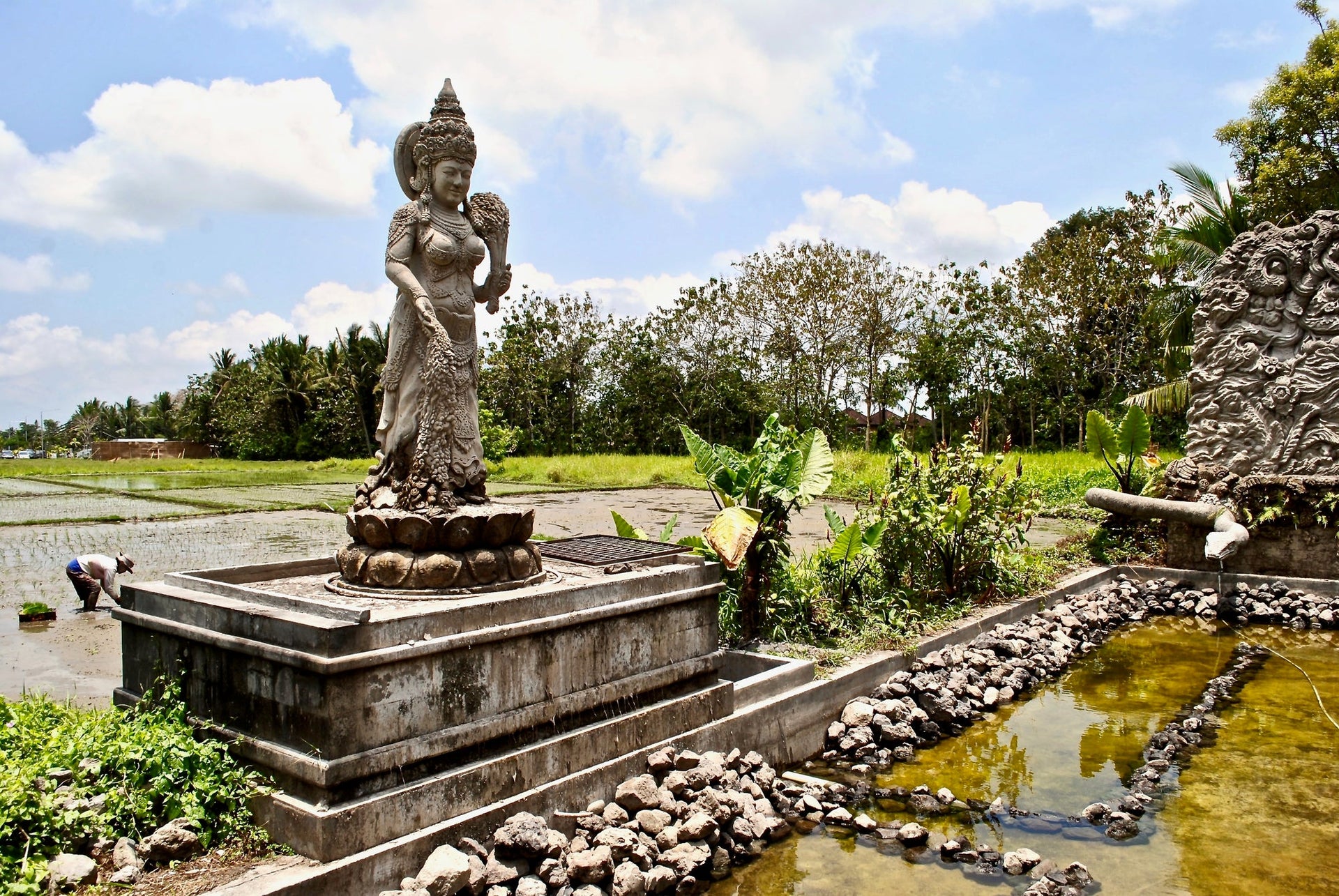
Dewi Sri: The Goddess of Fertility and Prosperity in Balinese Culture
In the spiritual heart of Bali, where myth flows as naturally as water through its terraced rice fields, Dewi Sri holds a sacred place in the island’s collective soul. She is the goddess of rice, fertility, and life itself—a divine figure whose influence reaches from the temples and altars into the very soil of the land.
Across Bali and much of the Indonesian archipelago, rice is not merely food. It is the essence of survival, the gift of the gods, and a symbol of balance between nature, humanity, and spirit. In this sacred context, Dewi Sri is more than a myth. She is presence and provider, giver and guardian, woven into the island’s rituals and daily rhythms.
The Spirit of Abundance
Balinese culture sees life as a constant dialogue between the visible and invisible, the physical and the spiritual. Dewi Sri is at the center of this dialogue. She is honored in small hand-woven offerings placed in rice fields, in sculptures and shrines near harvest-ready crops, and in ceremonies of gratitude marking each stage of the planting cycle.
She is graceful, compassionate, and nurturing—but never passive. In myth, Dewi Sri transforms from sorrow into strength. She is born of sacrifice and remembered as a protector of equilibrium. Her blessings are not confined to agriculture alone; she symbolizes the prosperity of home, family, health, and the quiet abundance that sustains life.
To honor Dewi Sri is to honor growth in all its forms.
A Myth in Sterling Silver
Bringing Dewi Sri into the Mythical Figures of Bali™ collection required reverence and precision. The design process began not in the workshop but through research into her mythology, iconography, and symbolism. Her image—serene yet powerful—was translated into a detailed sketch and then transformed into a high-definition 3D model, capturing the elegance of her facial expression, the flow of her headdress, and the quiet strength she radiates.
The model was 3D printed in brass by one of the world’s most advanced printing studios, using cutting-edge precision tools. From there, it traveled to Bali, where traditional craftsmen in Celuk began their sacred process. The master print was used to create rubber molds, from which wax replicas were shaped and assembled into a wax tree for casting.
This process is not fast. It requires deep skill, patience, and understanding of how silver flows, cools, and holds form. After casting, the piece is cleaned of its plaster shell, polished by hand, and given a touch of oxidizer to highlight the intricate sculptural details. The Mythical Figures of Bali™ logo and sterling silver 925 hallmark are laser-engraved from one precise digital file, ensuring consistency and clarity in every piece.
Finally, Dewi Sri is assembled by hand onto a dark blue recycled leather bracelet and fitted with a custom stainless steel clasp—adjustable in size, discreet in function, and elegant in finish.
Wearing Dewi Sri
To wear Dewi Sri is to carry a symbol of nourishment, harmony, and generative power. It is a quiet but potent reminder that abundance is not just what we gather, but what we nurture—within ourselves, our families, and the world around us.
She does not shout. She does not demand. Yet her presence is unmistakable.
The Dewi Sri Bracelet is for those who believe in the slow power of growth, the sacred rhythm of seasons, and the beauty of giving back. Whether as a gift or personal keepsake, it brings the richness of Balinese spirituality into everyday life—handcrafted, rooted in myth, and made to endure.
